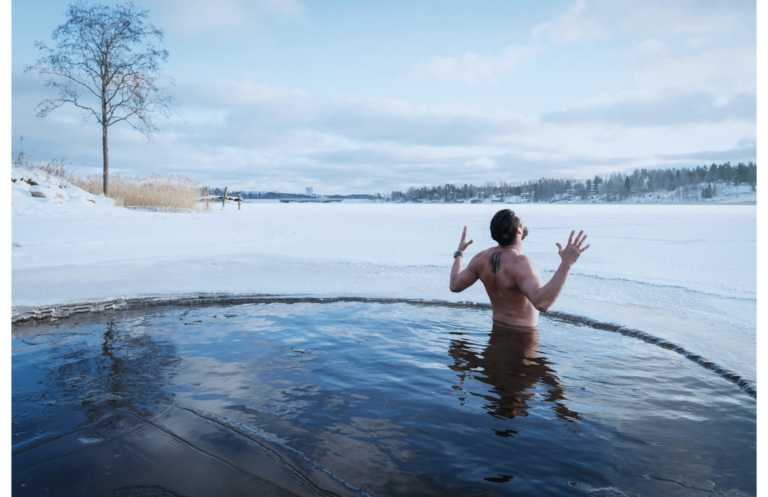How to Calm the Sympathetic Nervous System: A Proven Guide to Reducing Stress and Anxiety

Are you stressed, anxious or overwhelmed? Do you struggle to calm your mind and body?
Calm your sympathetic nervous system and reduce stress and anxiety in your life. An overactive sympathetic nervous system can cause muscle tension, anxiety and insomnia.
In this guide we will look at techniques and strategies to relax, manage chronic stress and build resilience for a healthier nervous system. Let’s take control of your well-being and calm your mind.
the Autonomic Nervous System
The autonomic nervous system (ANS) is in charge of your body’s automatic functions that keep you alive. Think of the ANS as a two part team, each member has a vital role. On one side we have the sympathetic nervous system (SNS), your body’s superhero, ready to spring into action with the “fight or flight” response. On the other side the parasympathetic nervous system (PNS) is your personal zen master, promoting peace, calm and digestion.
You know that feeling of butterflies in your stomach when you’re about to give a big presentation or go cliff jumping for the first time. That’s the SNS and PNS at work, making your body respond to different situations.
But what’s really cool is the central nervous system’s (CNS) job of keeping the SNS and PNS in balance. This balance is key to our well being, it affects everything from how we handle stress to the quality of our sleep.
So why is this important?
Because by understanding the ANS you’re taking the first step to align your body’s natural rhythms, to relax and be more resilient to stress. By knowing the difference between your conscious thoughts and automatic bodily responses you can get back in control of situations that feel completely out of your control. Nervous system balance is key to overall well being as it allows the body to adapt to stress and stay healthy.
Stress on the Nervous System
Think of your nervous system as a city, the sympathetic nervous system (SNS) is the emergency services, always on high alert, ready to protect you from danger.
Now add a bit of chronic stress—think of it as rush hour traffic—it can put this emergency services into overdrive. This is where the lights and sirens go off way more than they should, causing anxiety, high blood pressure and that muscle tension you can’t get rid of.

When stress hits, it’s a call to action for stress hormones, adrenaline and cortisol to ready the body for action. This is perfect for those “run from a tiger” moments but not so good when the tiger is a constant stream of emails, deadlines and daily demands. The kicker is prolonged exposure to these stress signals can throw off the balance between our internal emergency response and our rest and digest system and put us into a state of hyperarousal.
This means our nervous system gets crossed wires, we start to interpret everyday situations as high stakes emergencies. It’s like having a car alarm that goes off at the slightest touch. Not only is this exhausting but it sets the stage for a whole host of health issues down the line.
An overactive nervous system can cause anxiety, hyper-vigilance and difficulty relaxing. But don’t worry, understanding this is the first step to turning down the volume on stress and getting back that sense of calm and balance in the nervous system.
5 Techniques to calm the Sympathetic Nervous System
Let’s get into some of the most fun and effective ways to calm your body’s alert system and relax.
1. Deep Breathing
Focus on slow, deliberate breaths. Inhale through your nose, hold for a few seconds and exhale through your mouth. This tells your body the coast is clear and it can switch from high alert to calm.
💚 Try my personal favorite guided deep breathing exercise now!

2. Progressive Muscle Relaxation
Relax each muscle group methodically, starting from your toes and working up to your head. Tense each muscle for a few seconds then release. This releases physical tension and relaxes the body.
💚 Follow this step-by-step guide on progressive muscle relaxation!
3. Visualization
Close your eyes and imagine yourself on a beach or in a forest. Imagine the sights, sounds and smells of this peaceful place. Visualization can distract your mind from stress and calm you down.
💚 Start a guided visualization journey!
4. Yoga and Tai Chi
Do some yoga or tai chi. These are not just exercises but moving meditations that combine physical strength and flexibility with mental calm and focus. Follow a guided routine to make sure you’re doing it right and get the most out of it.
💚 Make sure to use an eco-friendly yoga mat!

5. Healthy Diet and Probiotics
Feed your gut healthy bacteria by eating a thoughtful diet rich in fibre, fruits and vegetables. Add probiotics found in fermented foods like yogurt, kefir, sauerkraut and kimchi to support your nervous system. A healthy gut will positively impact your overall well being and stress levels.
💚 Promote immune support and gut balance with probiotic supplements!
Activating the Vagus Nerve for Relaxation
The vagus nerve is your body’s chill-out champion, located within the parasympathetic system, that sends calming vibes throughout your body.
- Cold Exposure: Splashing your face with cold water can trigger your vagus nerve to kick in and tell your heart rate to slow down and relax.
Next time you feel stressed, splash your face with cold water or take an ice bath if you can.
- Music and Singing: Music with its calming melodies can directly stimulate your vagus nerve. Singing or humming your favorite tune can also massage your vagus nerve into relaxation.
Put on some relaxing music or sing in the shower to lift your mood and relax.
- Gentle Touch and Massage: Self care acts like massages are greatly beneficial to your vagus nerve, and tell it to relax.
Book a massage or practice self massage techniques to unwind and relax.
- Breath Work Integration: Integrate breath work into your daily routine in creative ways, like breathing mindfully while walking or combining with visualization.
Try different breath work methods like box breathing or alternate nostril breathing to see what relaxes you the most.
Whether through cold exposure, music, touch or breath work techniques, you have the tools to activate the vagus nerve for relaxation.
Building Resilience and Reducing Stress
Building resilience is about setting up a foundation for a happy, low stress life and overall well being. Start by adding self care into your daily routine.
When your nervous system detects a threat, real or imagined, it triggers the fight or flight response and physiological changes. Finding joy in the simple things can reduce stress.
Nutrition is also part of resilience. Eating whole foods supports mental and emotional well being so nutrition is key to building resilience.
Personally, when I switched from eating fast food three times a day (for convenience) to just three times a week (cooking more), I noticed a significant improvement in my overall well-being. I felt better throughout the day, had more energy, and experienced deeper, more restful sleep. It was like I’d unlocked a different dimension of reality.
Meditation, exercise, proper nutrition and joyful activities in your daily life creates a stronger more resilient you. Start integrating these into your routine to build a stress resistant life.
Self-Care for a Healthy Nervous System
Self care is key to a healthy nervous system. It starts with making time for activities that help you relax and recharge like reading a book, watching YouTube or just going for a walk. These simple activities can help you unwind and take your mind off daily stressors.

Gratitude and positivity are also important. Taking a few minutes each day to reflect on what you’re thankful for can improve your mood and overall outlook. This shift in perspective can reduce stress and increase well being.
Adding small intentional acts of self care into your daily routine can make a big impact. Cooking a healthy dinner in the evening, listening to calming music in the morning or even spending a few minutes in nature can soothe your nervous system. These moments of self care may be small but they are a much needed break from the chaos of daily life.
Self care isn’t about grand gestures it’s about the small, intentional actions that support your well being.
By making self care a priority you’re creating a buffer against stress and supporting your nervous system. So take the time to add these into your daily routine and experience the benefits of a balanced and resilient nervous system.
Managing Chronic Stress and Anxiety
Managing chronic stress and anxiety can be tough but it’s doable with the right approach. Seeking help is a proactive step to finding peace and will get you expert guidance and tailored strategies. Remember asking for help is not a sign of weakness but a brave step to reclaim your well being.
You need a self care plan. This plan should include intentional moments of relaxation in your daily and weekly routine. Think meditative walks, mindfulness sessions or even just simple breathing exercises. These are anchors that keep you grounded and centred when life gets rocky.
Knowing the signs of stress and anxiety means you can respond with self care instead of letting anxiety take over. Self awareness allows you to address stress before it gets out of control.
Self care becomes a daily habit that reduces stress and anxiety. It’s not just about facing the storm it’s about being resilient and graceful in each moment. These strategies are a safety net that catches you with soft gentle hands and reminds you you’re not alone on this journey.
“The greatest weapon against stress is our ability to choose one thought over another.” – William James
Creating a Relaxing space at Home
Turn your home into your own stress relief haven. Start with decluttering, use the mantra a clear space equals a clear mind. Getting rid of excess clutter can reduce stress and create a more peaceful space.
Add elements of nature—plants that purify the air, natural light instead of artificial light or even a picture of your favorite landscape. These natural elements will add to the beauty of your space and your sense of calm and well being.
Use calming colors in your space, blues, greens or earthy tones. These colours can have a big impact on your mood and create an environment for relaxation. Consider the power of aroma, add essential oils or scented candles that can transport you to a state of bliss. Lavender, chamomile and eucalyptus are calming scents.
And finally dedicate a corner or small space for meditation or yoga, a physical space where the outside world pauses and your inner world expands. This space doesn’t have to be big or fancy it just has to be a space where you can focus on your well being. This space you create isn’t just a room it’s a retreat that welcomes you with calm as soon as you walk in.
By creating a relaxing space at home you can reduce stress and increase your overall sense of well being. This space becomes your haven, a place to escape from the stresses of everyday life and find peace and relaxation.






